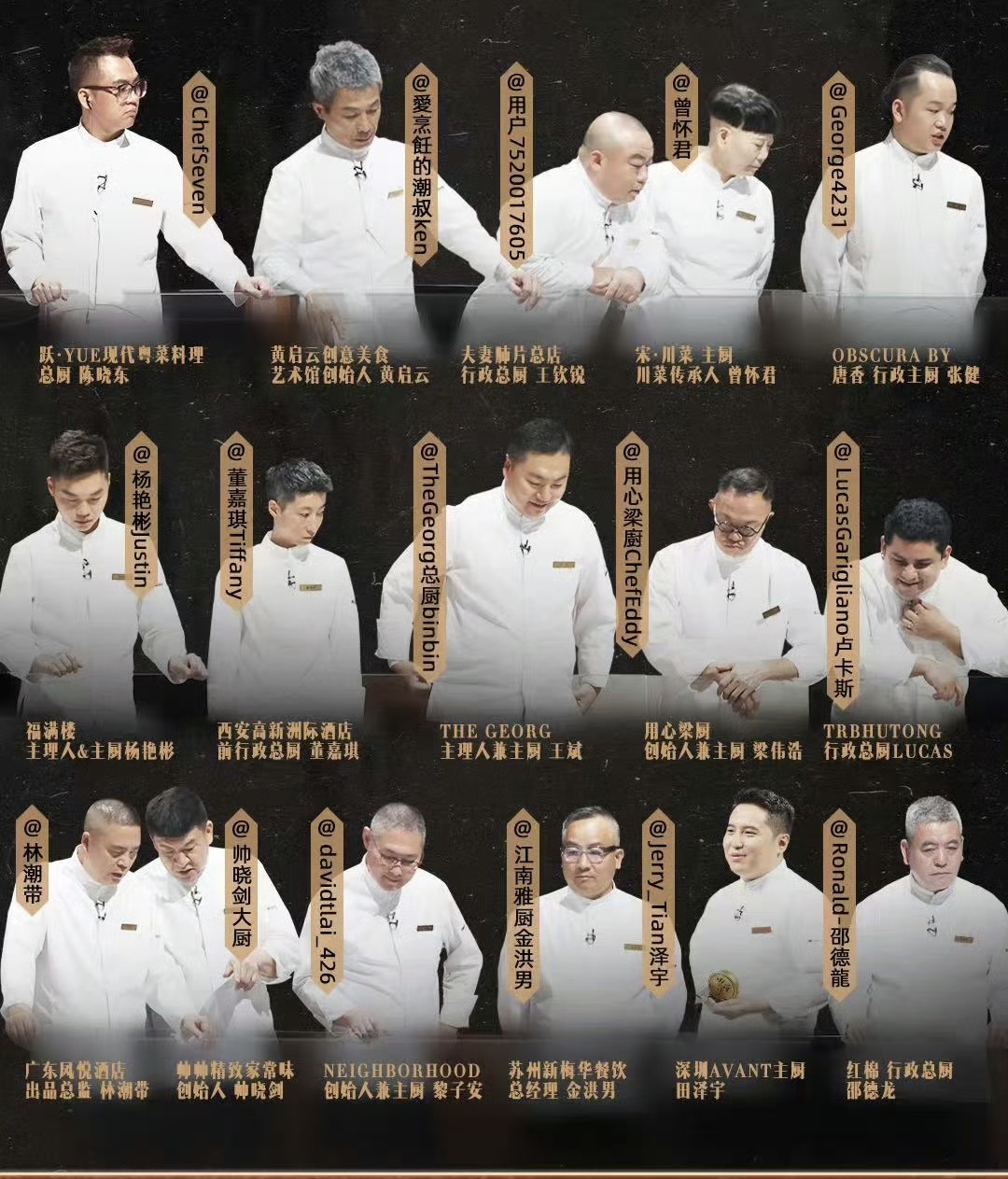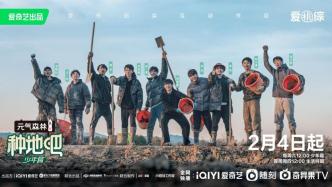
Pang Bo said a "joke" on "Talk Show Conference 5" last year: "Let a group of boys with no strength to restrain chickens grow 10,000 catties of grain in six months on a piece of barren land. I understood at the time that it was mainly for the group of idols who have been out of work at home for the past two years, right? The real boy group re-employment."
Facts have proved that this is not a joke, but a "warm-up". Some variety shows are really putting such an idea into practice: farming is a talent, and the countryside is a stage. Even if there are some draft genes, it is a proper positive energy.
It is the variety show "Planting the Land".
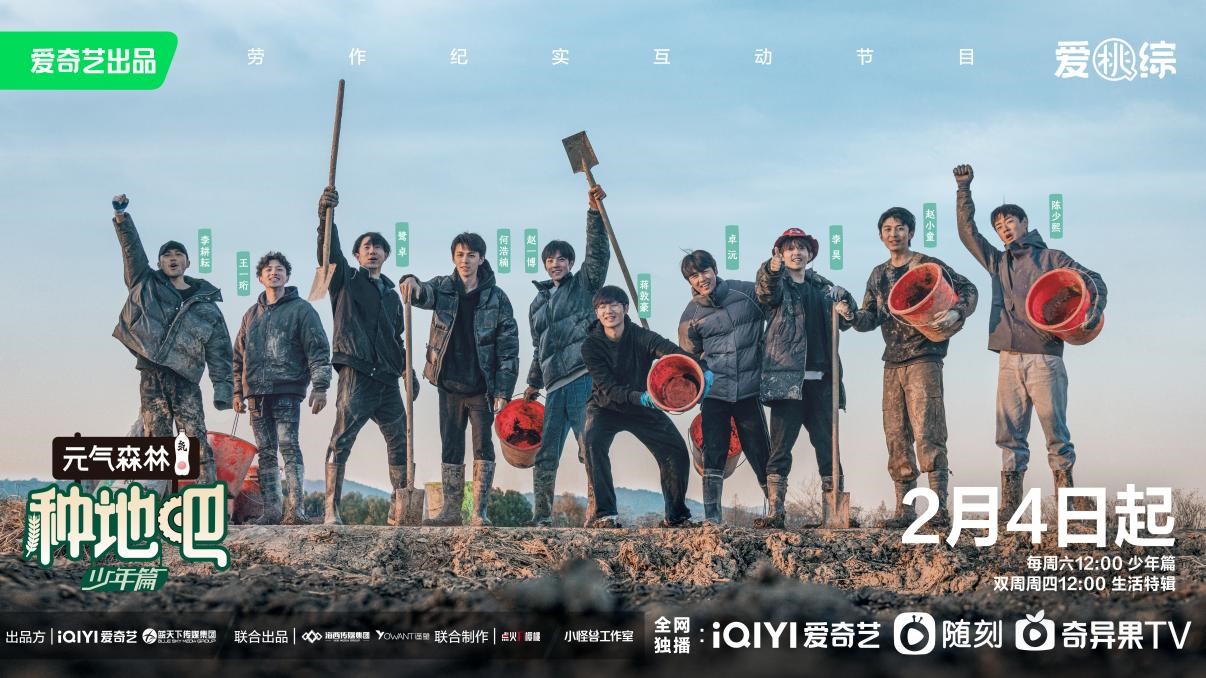
"Planting the Field" poster
In a sense, the audience can regard "Planting the Land" as a "draft" program-don't preconceivedly regard "draft" as a negative word; the program is actually "Planting the Land 101" " The production logic of "Idol Farmer" and "Farming with You" is similar to that of talent shows.
Talent shows often require closed-loop recording, and a group of people live together for about three months. "Planting the Land" is also a group of teenagers going to a certain village in Zhejiang, and the recording time has reached 190 days without interruption (except for the few days off for the teenagers during the Spring Festival). The difference is that talent shows generally have 101 contestants who have been eliminated layer by layer. "Planting the Land" has 10 contestants from the beginning to the end. There are no eliminations, no casting, and there are "shows" but no selection.
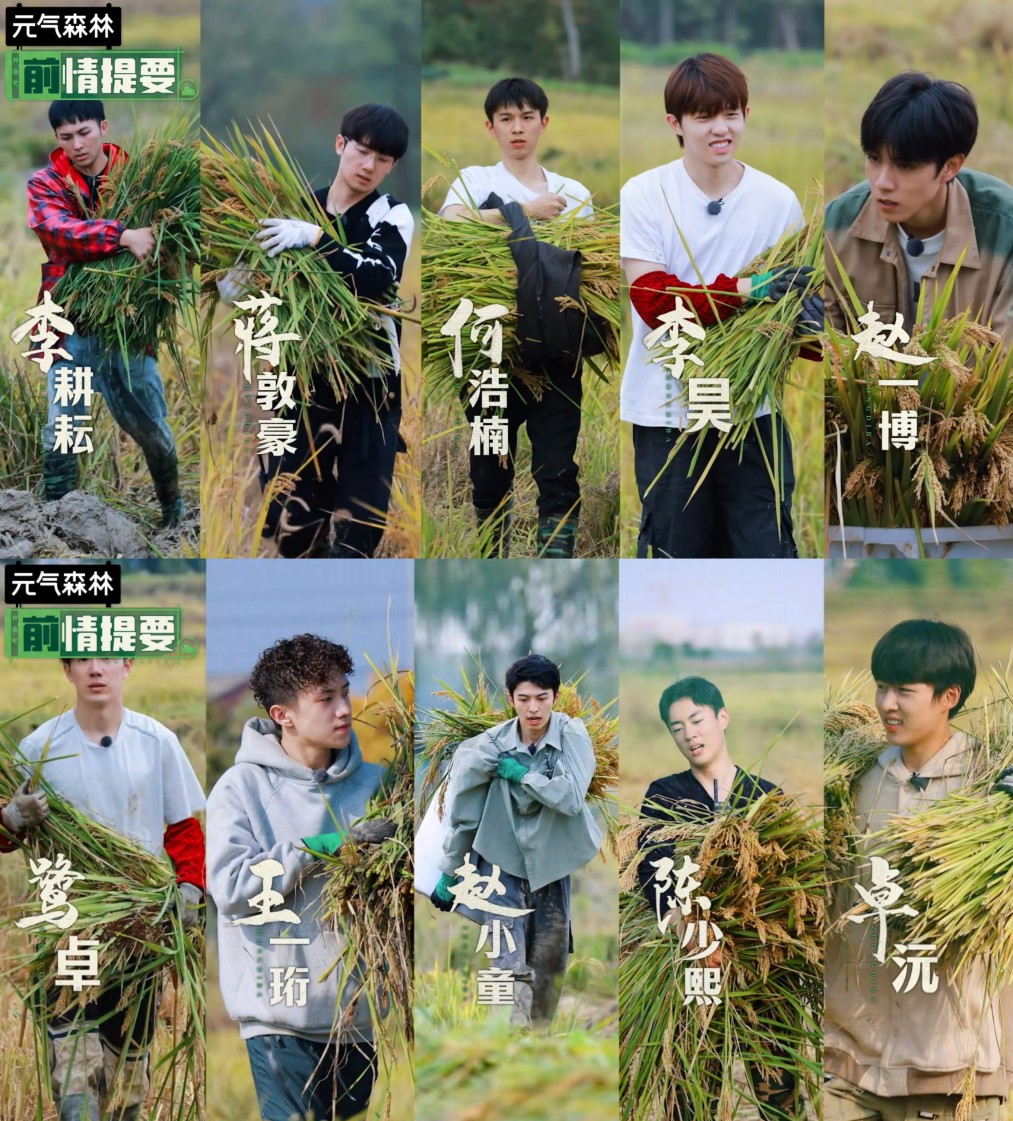
10 teenagers
In the talent show, the stage of the trainees is a real performance stage, singing and dancing is their talent show; "Planting the Land" 8 pieces of farmland and 142 acres of land are the stage for these 10 young people, and farming is their talent show .
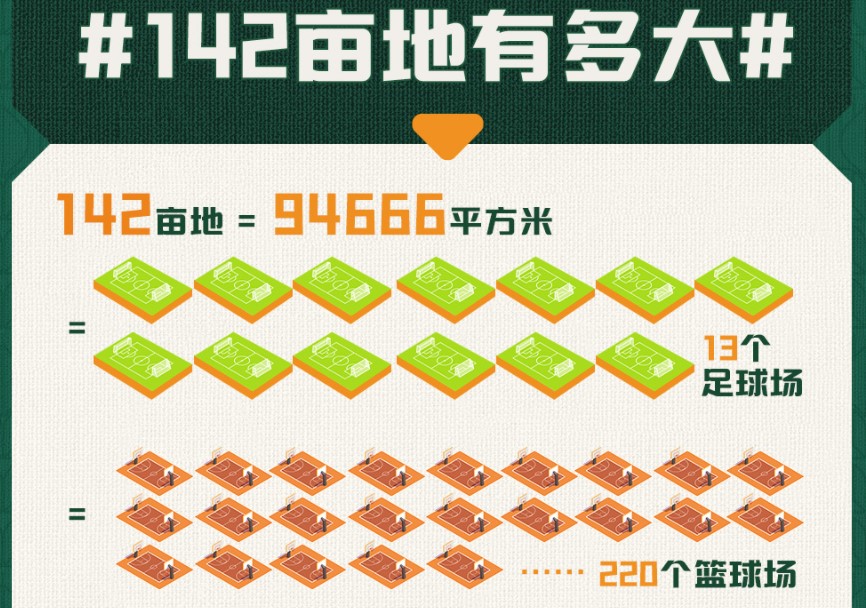
This 142 acres of land is the "stage"
In the talent show, practice singing and dancing skills on birthday nights; "Planting the Field", teenagers improve their farming skills day and night.
In the talent show, the trainees discuss the division of labor and review the gains and losses for each performance; in "Let's Plant the Land", the teenagers squatted on the ground to discuss how to plant the land well.
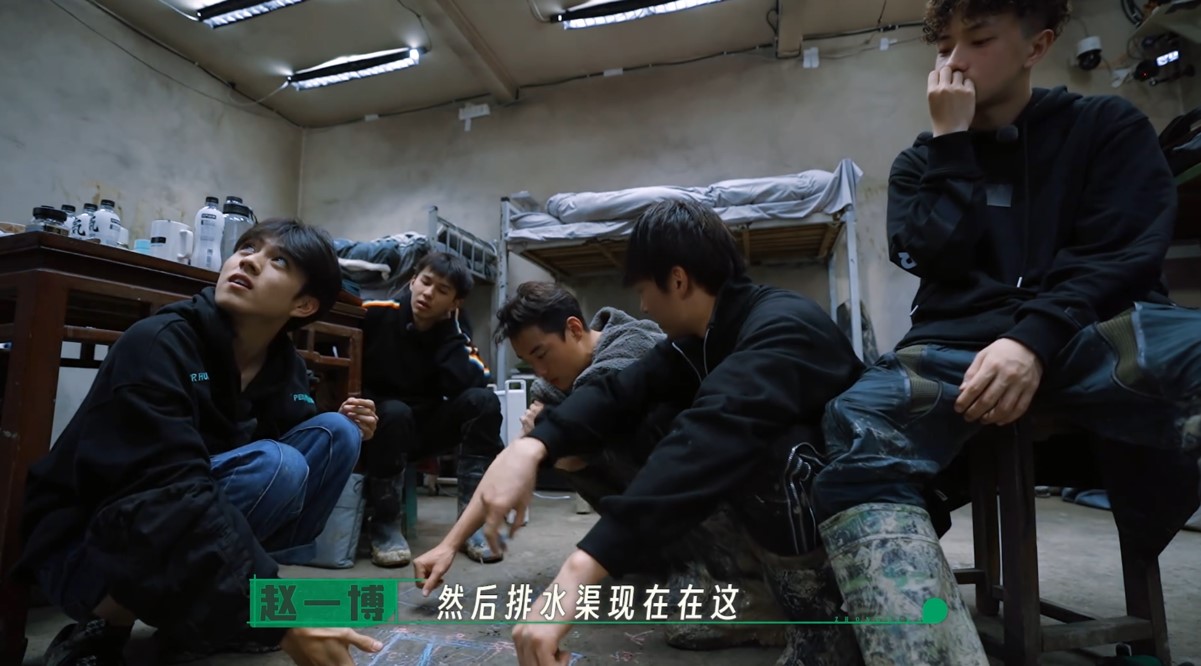
Discuss how to drain the water from the fields
In the talent show, trainees occasionally visit the next-door group to see how others are doing; in "Let's Soil", the teenagers "inspect" the next-door field to learn from each other's strengths.
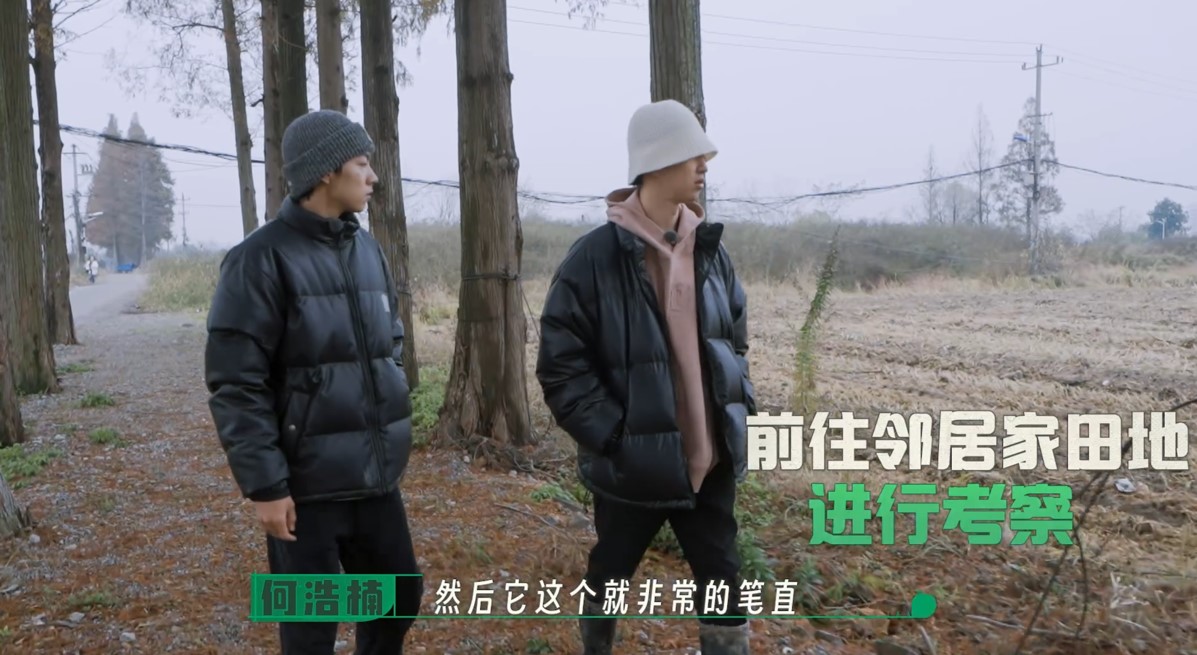
inspect other people's land
In the talent show, the program team will invite professional teachers of various categories to guide the trainees; in "Let's Plant the Land", there are also agricultural experts to "train" the teenagers, and they listen carefully...
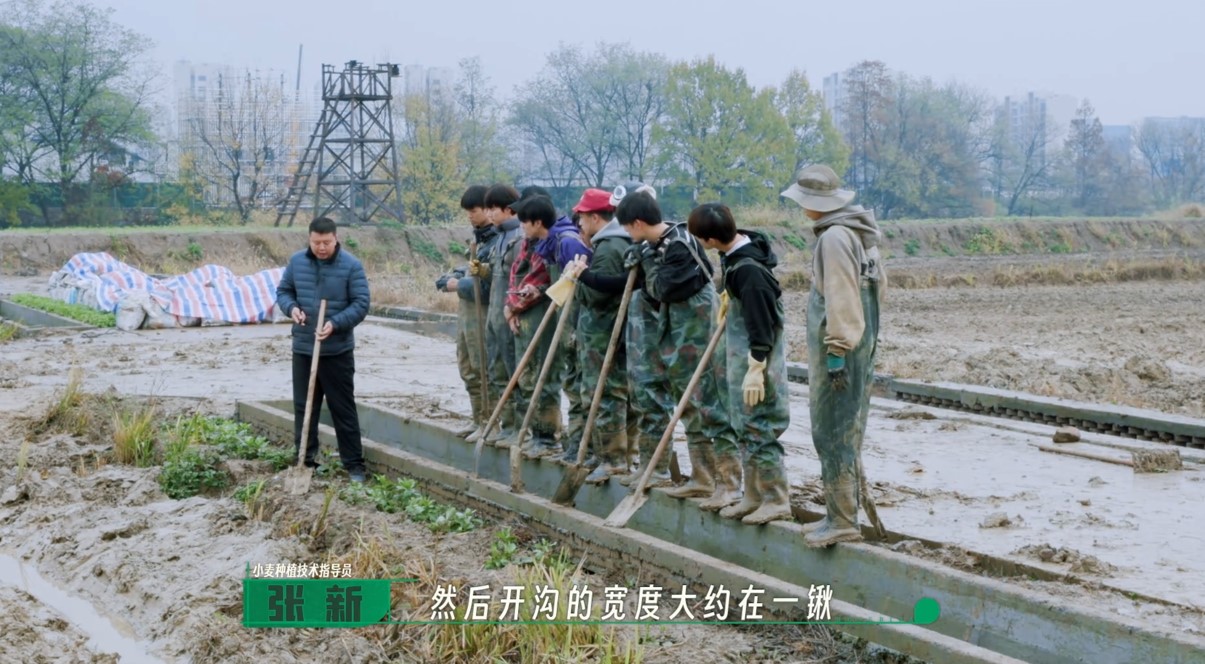
Listen to the technical instructor for planting guidance
"Let's Plant the Land" is indeed rare in domestic entertainment - not because of its recording time and no pay (in fact, the recording time of the draft is also very long, and there is no pay), but it uses the field as an unprecedented "stage" , regard farming as a "talent", and let a group of young people carry out "training" in farming in a down-to-earth manner for 190 days.
For the contestants in the talent show, the most important thing is to make their debut; for the teenagers in "Let's Soil", gaining rare exposure through this variety show should be the most important starting point for them to join the program group one. This has become the most controversial part of the program - some people deny the program on the grounds that young people "want to be popular".
Entering the showbiz, isn't it human nature to want to be popular? Just like working to make money, farmers plow the land for the harvest and to sell the crops at a good price. What is controversial about this? Some people have "sublime" farming and farmers, and frequently label the program group as "spoiling food". At first glance, such an online program shows respect for farmers, but in fact it puts agriculture, rural areas, and farmers on the shelf. On the contrary, it cuts off the important path for ordinary people to understand "three rural areas".
Therefore, the motivation of these 10 young people to participate in the program is not so important. What is important is that they have indeed stayed in the fields for 190 days, produced such a variety show, and slowly gained popularity among young audiences. Going out of the circle slowly has several positive effects objectively.
One is to let young people truly understand labor, respect labor, and learn to labor.
Needless to say, inability to work, poor hands-on ability, and inability to distinguish between grains and grains are common problems of many young people; the popular "balcony growing vegetables" among urban white-collar workers is mostly Ye Gong's love of dragons, which is equivalent to "Longing for Life". "As a real life of farming, how can there be so much leisure and leisure in real labor.
"Planting the Land" allows 10 young people to participate in various farm work without interruption for 190 days. The hard work of it.
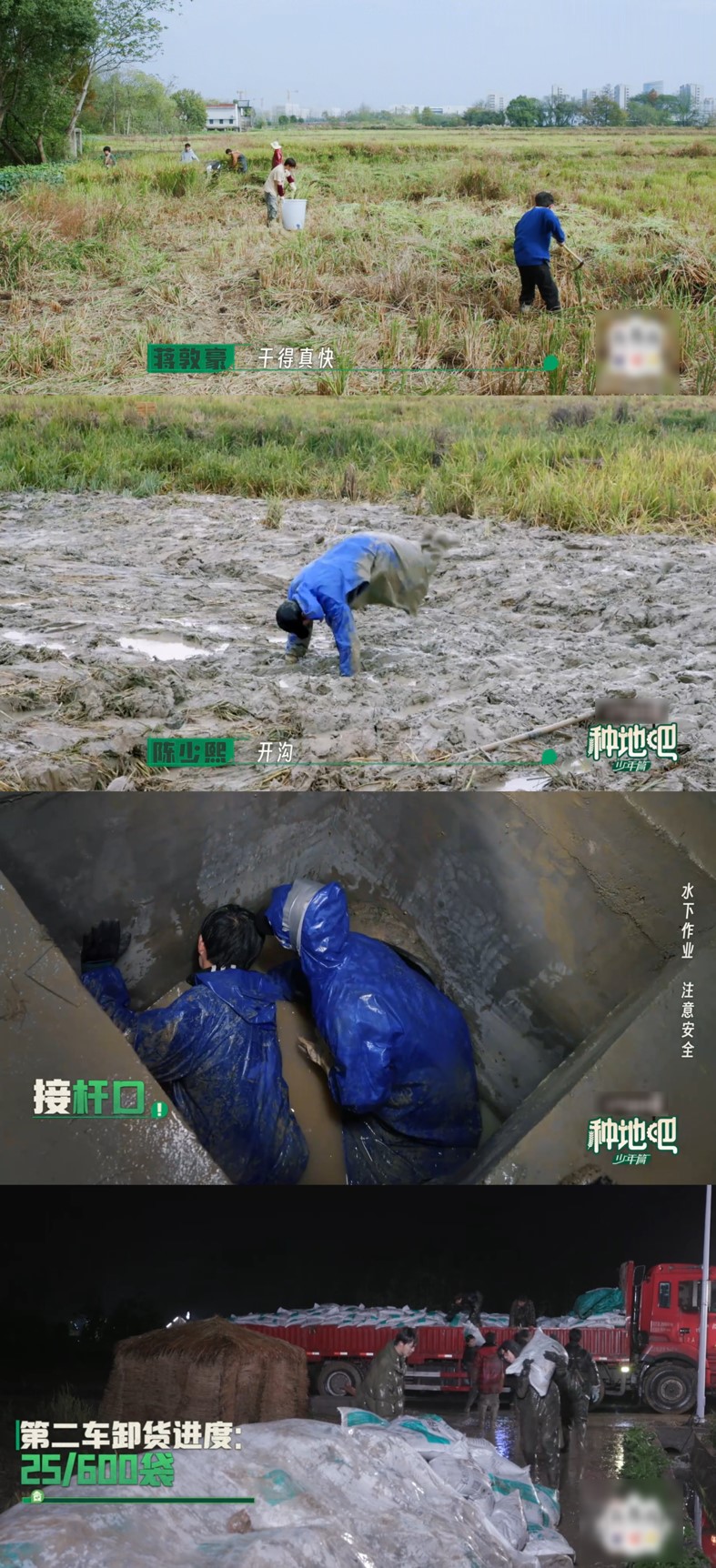
The boys are indeed working hard
In fact, farming in the show has been highly technical, such as large harvesters and drone sowing. However, planting in many rural areas in China is still at the stage of relying on manpower. From sowing to harvesting, all operations require a little bit of manual labor, which is more laborious than the labor in the show.
Last year, the labor class became a compulsory course in primary and secondary schools again, and "Planting the Field" was somewhat helpful in raising young people's labor awareness. Although the children in the city will most likely never have the experience of farming in their entire lives, at least they must develop the awareness of respecting labor, awe of labor, cherishing food, and knowing how to be grateful.
Furthermore, using the countryside as a stage and farming as a talent will also help the leisure class living in the clouds to break their arrogance and prejudice against "agriculture, rural areas and farmers".
Most farmers have a deep awe of scholars, and it is the wish and pride of many farmers to send their children to college. But on the contrary, many people who have knowledge and cultural discourse power lack understanding and respect for "agriculture, rural areas and farmers". I remember that there was a gossip in the past, and the daughter of a certain wealthy family laughed at ordinary people as "farmers".
But as Luo Xiang said: "A farmer who comes to the city and doesn't understand traffic rules is not stupid, he just doesn't understand what traffic rules are. He's stupid, he just hasn't been in touch with it." I hope that "Planting the Land" can make those high-ranking people see clearly their "luck" (talent is only the consequence of the right to speak) and "limitations" (if farming is a talent, you far worse than farmers).
Furthermore, in 190 days, hard work and down-to-earth doing one thing well may allow those young people who have been suspended above life to really live for a while, so that their future lives will be better. Be less arrogant and impetuous. One day when it is really popular, you can always remember the feeling of farming, and maybe you can avoid many house collapses.
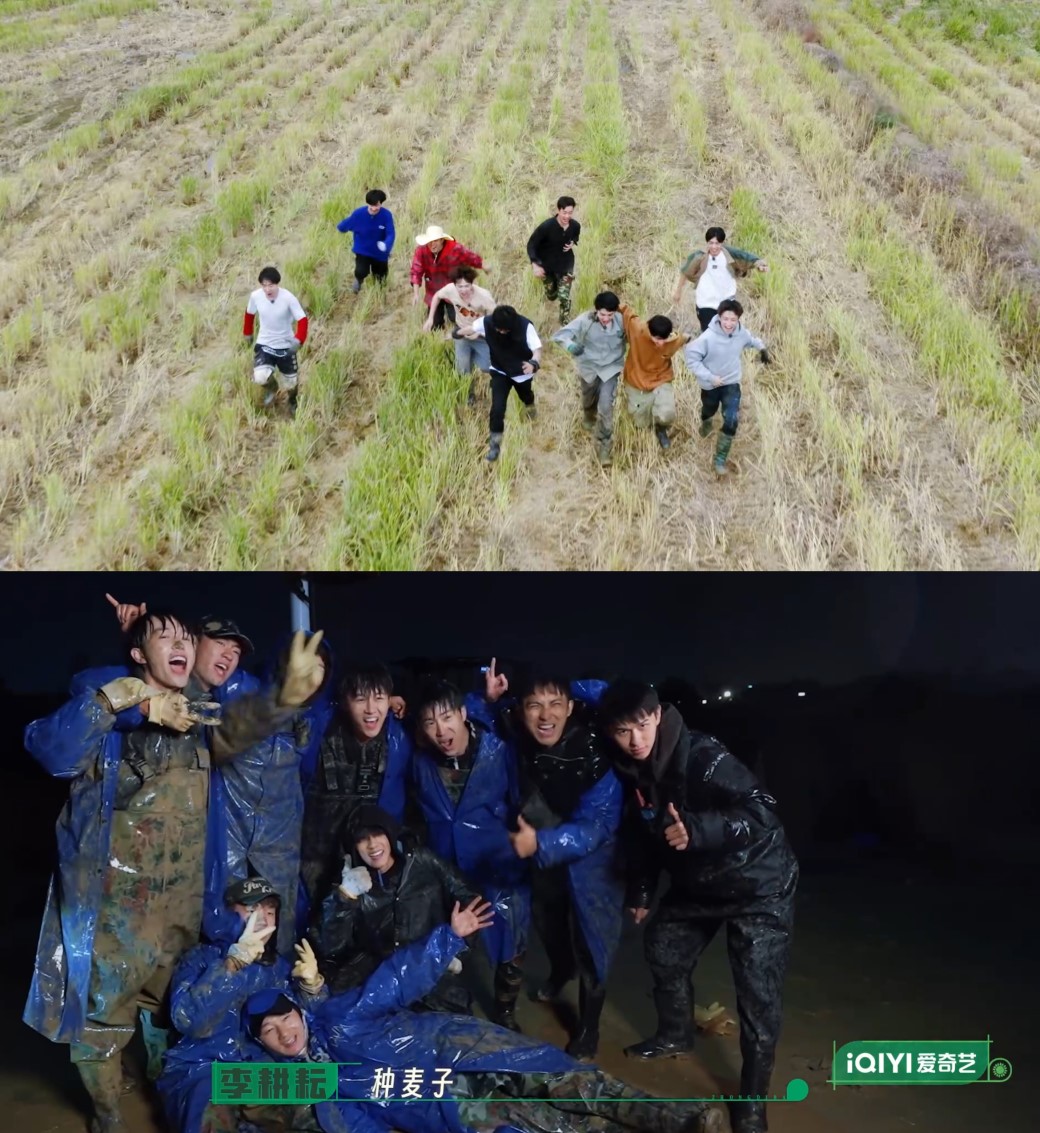
Remember the feeling of life, remember the real happiness
Finally, from the perspective of the variety show system, from "Mushroom House" and "Happy Restart" to this time "Farming the Field", it coincides that "sincerity is always a must-kill skill". In recent years, many headline variety shows with big productions and high traffic volume have hit the street, and their reputation has been bleak, which has already shown that the audience is tired of the false life shows of celebrities three feet above the ground. Get closer to life, give more sincerity, the so-called "fuzzy" and "fuzzy" will wait for the appreciation of the audience.


